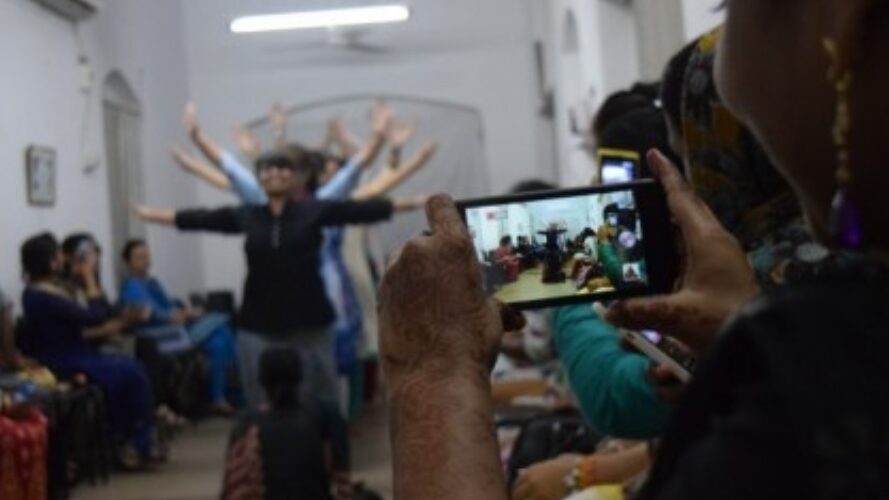More Than Survivors: Thriving After Trafficking
Sex Trafficking
On May 7, 21 young women travelled across West Bengal to gather in a gated garden along a busy Kolkata road. Some traversed more than two hours by train with a baby in tow; others wove through morning traffic on crowded buses.
What brought them together was their shared experience of overcoming sex trafficking through rescue and restoration, but the purpose wasn’t to dwell on the past: These women are no longer simply defined by what they’ve endured, but instead by who they’ve become.
Mala,* rescued from a brothel where she was mercilessly beaten and raped, is now a confident beautician employed at a professional salon. Kashi,* sold as a child into domestic servitude and then prostitution, is studying, learning to play the violin, and training in a beauty parlor. Lara,* trafficked multiple times by her ex-husband, practices English and tailors her own clothes.
“I stitched my kurta,” she announced with pride before the group, showing off the embroidered green and purple top. She added, “I’m so happy to meet you all. We are all busy, but when we come together to just enjoy and talk, that’s really nice.”
Finding Fun and a New Family
IJM social workers walk with survivors of trafficking from their first few moments in freedom to their full restoration years later. The team commits to supporting each girl until she has overcome her trauma and can support herself.
In 2013, the social workers saw a need for a support network among survivors who had transitioned out of aftercare shelter homes.
“The survivors meet each other at the time of rescue when they’re new in the home and then they move on and take charge of their own lives,” said IJM social worker Dona Kottackal. “But it’s important for them to connect again and for survivors from different years to share stories to encourage one another, and to be able to know there’s healing, new life and possibility.”
Dona and her team initiated what would become an annual reunion.
“Girls look forward to the reunion as a day out where they can connect with old friends and make new ones,” she said. This year, two young women were overjoyed to meet for the first time since they were rescued from the same brothel in 2013.
Over the eight-hour reunion, the young women danced, played games, put on a fashion show, painted one another’s nails, and drew mehindi artwork on each other’s hands. Friends passed around photos of celebrations and their growing children on mobile phones.
“They’re a family: they’re not alone and they’ve gone through the same thing,” Kottackal said.
Equipped for the Future
Young women coming out of sex trafficking face innumerable challenges: psychological trauma, lack of education and employment, and social stigmas. To overcome these difficulties, social workers provided resources about government food programs, banking services, female helplines and police stations, and vocational opportunities.
Antara Banerjee, a representative of NGO Rakshak Foundation, introduced a program where survivors could receive training and job placement in driving, tailoring or security services. The participants listened with rapt attention and asked engaged questions—their imaginations sparked by possibilities for the future.
“This event has opened doors for them to go back home and think about what they could do,” said Pasang Bhutia, IJM’s social work manager. “It’s showed them more opportunities and hope. These success stories inspire them to reach for their own dreams.”
*Pseudonyms have been used for the protection of these survivors.